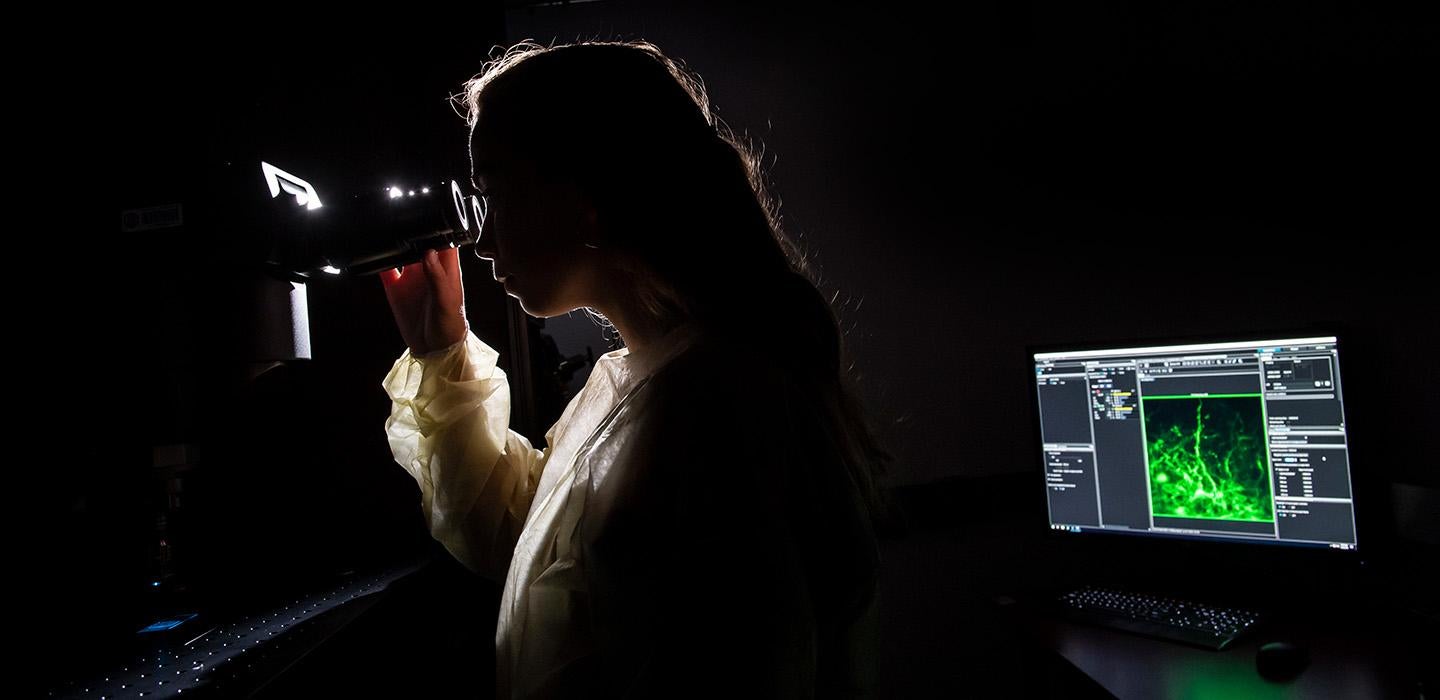
Subscribe to Pittwire Today
Get the most interesting and important stories from the University of Pittsburgh.The University of Pittsburgh announced today that it will spearhead the creation of the Pittsburgh Life Sciences Alliance (PLSA), a nonprofit, membership-based organization that will develop, promote and oversee a life sciences strategy to drive future regional growth.
The goal of PLSA, which is being launched with a $1.2 million grant to Pitt from the Richard King Mellon Foundation, is to develop a unified advocacy voice representing the range of public, private and not-for-profit entities in Pittsburgh’s life sciences corridor seeking to drive the next wave of health care innovation and growth. The robust research, clinical and commercial capabilities of entities across the region provide ample space for continued growth in the biotherapeutics sector, generating substantial new opportunities for business development, job creation and meaningful innovation.
Biotherapeutics is a promising new field that creates therapies using biologic methods such as the use of cell and gene therapies, recombinant DNA technology, blood components, proteins and other cells or tissues. Biotherapeutics can be programmed to target specific molecules within the body, which makes them highly effective against certain diseases and relatively easier to tolerate than other forms of treatment. These new biotherapies are part of the emerging specialty pharmacy market, which is expected to double over the next five years, generating annual revenue that will likely exceed $200 billion.
“The University of Pittsburgh is poised to lean on its deep bench of experts and deep-rooted partnerships to help fuel Western Pennsylvania’s next act as a growing — and then leading — life sciences hub,” said Chancellor Patrick Gallagher. “It’s a tremendous opportunity — one that the Richard King Mellon Foundation has helped move from an ambitious idea to an exciting reality.”
PLSA will leverage the significant investments in life sciences research by Pittsburgh’s universities, health care providers and private sector. It also will help to establish Pittsburgh as an internationally recognized leader in biotherapeutics research by attracting and fostering new industry, entrepreneurs and investment capital and creating an intersection among research, clinical and commercial environments. The organization’s professional staff will be charged with marketing our region to the international life sciences commercial sector and with developing advocacy and education programs for industry and educational institutions.
“The life sciences are one of the most important and promising sectors of the new economy, and Pittsburgh is well positioned to be one of its national and international leaders,” said Sam Reiman, director of the Richard King Mellon Foundation. “PLSA will anchor and champion our efforts to be that leader. It will help us to attract more resources and talent to the region. And, importantly, it will give us a platform for meaningful education and job training, so people in our region can compete successfully for the many great jobs this sector will continue to generate.”
“The Richard King Mellon Foundation grant enables us to take a critical first step in transforming the region’s life sciences innovation ecosystem,” said Senior Vice Chancellor for the Health Sciences Anantha Shekhar. “It’s a journey that the University of Pittsburgh — working in close collaboration with UPMC and other nonprofits, industry partners, public agencies and local communities — is both well positioned and proud to lead.”
Work is under way to recruit a PLSA implementation council to help guide these efforts, develop the organization’s mission and charter and hire a visionary leader for the organization. This council will be chaired by Gallagher and composed of regional life sciences leadership and stakeholders. Over time, additional council members will be recruited to reflect industry and community participation.


